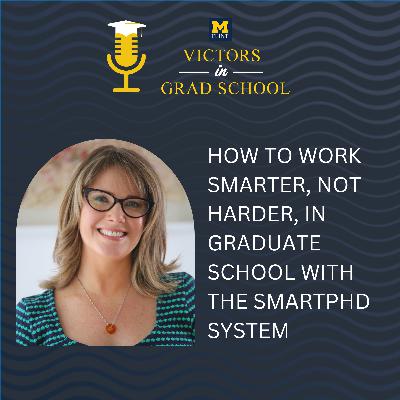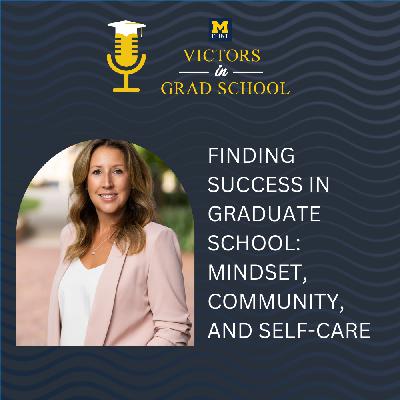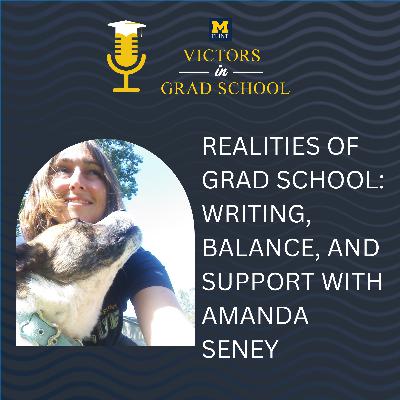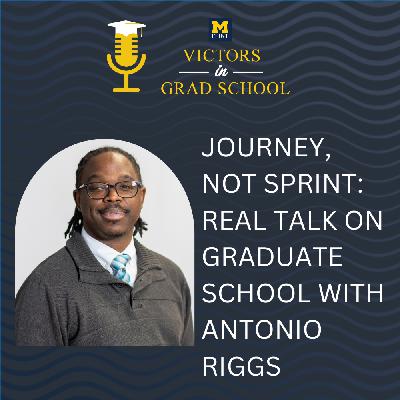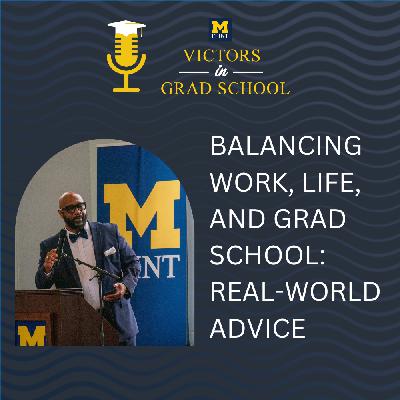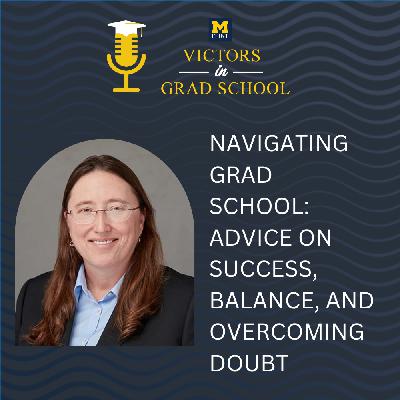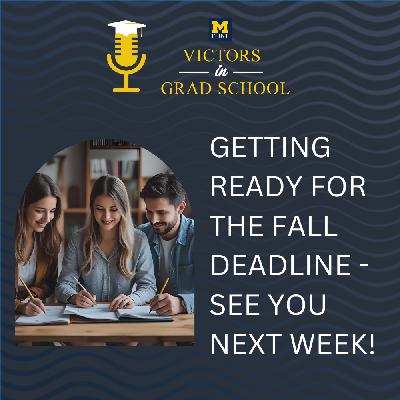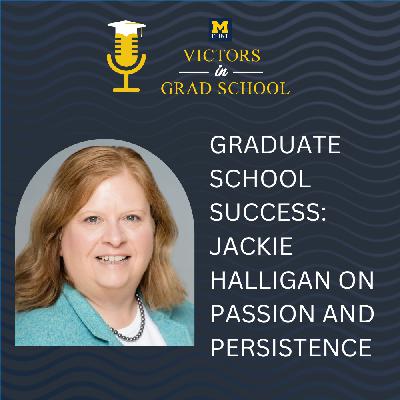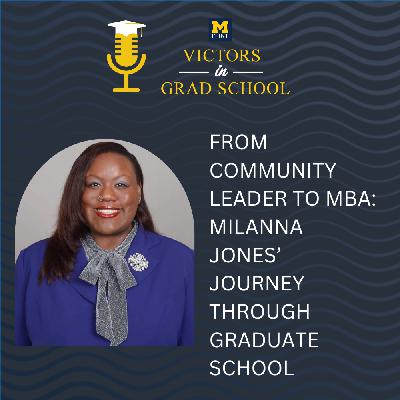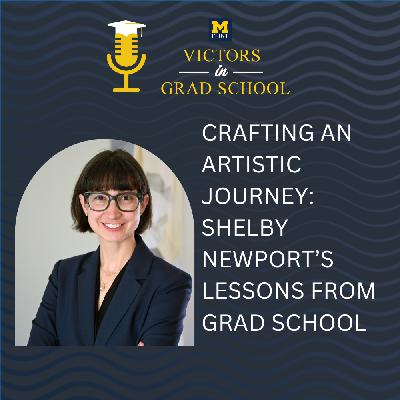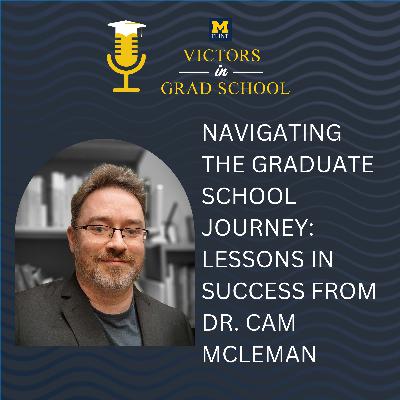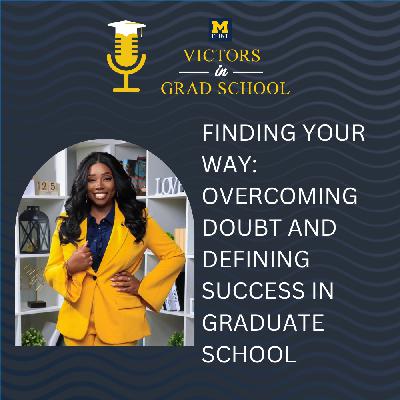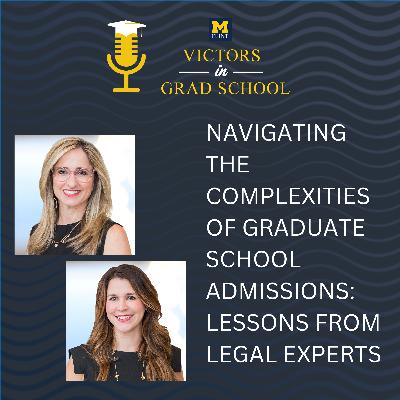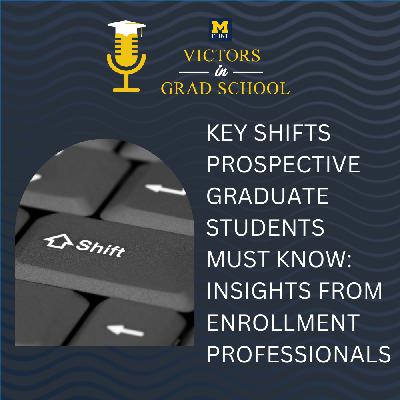What Most Grad Students Overlook: Essential Support Services and Strategies
Description
Navigating graduate school is a journey filled with both promise and challenge. While many students focus on selecting the right program or acing their classes, there’s a world of support—often overlooked—that can make all the difference. In the latest episode of Victor’s in Grad School, Dr. Christopher Lewis brings together enrollment professionals, faculty, and industry experts from universities across the country to answer a vital question: What’s an underrated support service or strategy that can make a big difference for student success?
A powerful theme that emerges is the value of community and connection. From networking with recruiters and professionals, to seeking out mentors and joining student organizations, building intentional relationships is a recurring piece of advice. Stacy Goldstein of UC San Diego urges students to “network, network, network”—not just for job opportunities, but to foster professional connections that can open unexpected doors.
Tapping into campus resources is another underappreciated strategy. Whether it’s visiting the writing center as recommended by Irene Aiken of UNC Pembroke, or taking advantage of the library’s knowledgeable staff and resources, graduate students are reminded that these supports go far beyond undergraduate basics. Several guests, like Matt Bohlen, highlight that services often assumed to be for undergrads—such as tutoring and consulting—are invaluable at the graduate level.
Career and professional development also take center stage. According to Tony Fraga, a proactive approach to career services—like participating in mock interviews—can directly impact post-graduate outcomes. Meanwhile, Paul Brandano from UCLA underscores the importance of identifying and addressing skill gaps before and during your program, whether by brushing up on technical skills or improving communication through creative outlets.
Finally, there’s a strong message about attending to mental health and personal well-being. Multiple voices stress the significance of using counseling services and seeking support from faculty, mentors, and peers. “Don’t suffer in silence,” advises Emily Dayton, reminding students they’re not alone on this journey.
The episode is rich with practical advice, personal stories, and a refreshing honesty about the realities of graduate education. If you’re considering graduate school or already on your journey, this conversation is an essential listen to ensure you’re not missing out on the resources that can propel you to success.
Tune in, take notes, and empower your grad school experience!
TRANSCRIPT
Dr. Christopher Lewis [00:00:01 ]:
Welcome to Victor's in grad school, where we have conversations with students, alumni, and experts about what it takes to find success in graduate school.
Dr. Christopher Lewis [00:00:11 ]:
Welcome back to Victor's in grad school. This week, we have a great opportunity to be able to learn from other enrollment management professionals. I recently attended the National Association of Graduate Admission Professionals or NAGAP. And at that conference, I spoke to a number of enrollment management professionals and individuals working within industry that are working with higher education about a number of questions to help you in the journey that you are on toward graduate school. This week's question is what's a underrated support service or strategy that can make a big difference for student success. I hope that you enjoy the answers to this question and that it will help you on the journey that you are on.
Stacy Goldstein [00:01:04 ]:
Hi. This is Stacy Goldstein with UC San Diego at Rady School of Management with the master professional accountancy program. I work in our graduate department in admissions. And my big thing is being your cheerleader for my students. Network. Network. Network. Network.
Stacy Goldstein [00:01:18 ]:
Write down every recruiter's name. So a lot of support strategy or what can you do to be successful. Make the connections you have count. So write down, even if it's an online virtual event, who you spoke with is that recruiter. So next time when you meet them, especially in person, you can make that connection and let them know that you were present. That helps.
Donna Wang Su [00:01:40 ]:
My name is Donna Wang Su. I am the associate director for graduate admissions and financial aid at Northwestern University, Medill School of Journalism Media Integrated Marketing Communications. I'm definitely biased, but I do think that an underrated service is gonna be your financial aid office. And I say that because I do a lot of one on one financial advising with my students, which quickly turns into strategic planning slash career services. Because we'll start talking about budgeting and we'll start talking about, well, I wanna be able to save up to do this. I wanna go explore this. And next you know, it leads down a different path. And I love connecting with students years later who tell me that they still remember tips or use strategies that we've used from our coaching sessions.
Santavaya Jordan [00:02:24 ]:
My name is Santavaya Jordan. I am the engineering graduate recruiter at Vanderbilt University, and I recruit only for our graduate programs in engineering. Definitely, back again, tack into the mental health. Making sure your mental health is intact as much as possible. Not everyone understands and believes how much they need resources to talk to someone whether it's a counselor or even a mentor that you could relate to. Someone that's been in your position before or someone that can just have be an outlet or a resource that doesn't have anything to say or give their own opinion on what you're going through, but a listening ear to ear to help you get through difficult situations, whether it is personally that can affect you academically or something that's academically that can affect you personally.
Paul Brandano [00:03:05 ]:
I'm Paul Brandano. I'm the executive director of the master of Science in Business Analytics at UCLA Anderson. But with a quantitative master's, I think the the probably more underrated support services are the things that are initially gaps on the technical side. So I I think, for example, about a person who was fantastic in our first cohort, she was, by training, an economist. She was an undergraduate economist and she came into our program and said, I just don't have the Python. I have never programmed in R. I don't really know my SQL. And she said, but I promise you by the time I get into the program, I will have taken a few courses and I plan on spending my Friday nights in the library.
Paul Brandano [00:03:39 ]:
And everybody can say that, but she absolutely did it. And I think that the difference it made for her was that she didn't just get hired by the the consulting firm. She got hired by BCG Gamma. You know, she could really walk the walk and talk the talk. So I think I think a lot of folks might underestimate the real leap they can make by just adding a little bit more pre prep before the master's degree. And I see that quite a lot. The other one is, you know, we do a lot with on the other end of the spectrum, if it's non quant, it's communications. And so if you if you come in knowing where your biggest gap is and then look for creative ways of filling them, not all programs are gonna do all of it.
Paul Brandano [00:04:11 ]:
And so we add improv as an example. But that improv is available in most major cities. Right? And I always recommend it. It's a great way to to sort of launch your way forward quickly in a short window of time while you're still getting your master's degree. The best time of your life when you're probably your most charismatic. And so I would recommend those kinds of approaches too. Like, look for the creative things that make you shine uniquely, you know, that give you that x factor, that ability to talk about something a little different than the average candidate might hear.
Emily Dayton [00:04:41 ]:
Hi. This is Emily Dayton. I am the senior director of the spe



